-
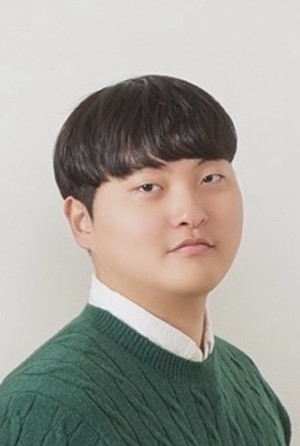
Nearly a month has passed since the start of the Spring semester, and for freshmen and returning students alike, an essential part of school life is student clubs.All formally registered student clubs at KAIST are currently managed by The KAIST Undergraduate Student Clubs Union (hereafter “Clubs Uni
Interview
Kyu-Ri Kim Head of Society Division
2024.03.23 00:49
-
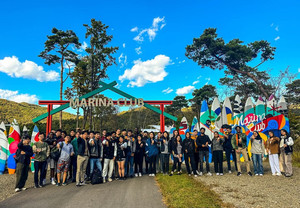
Since its inauguration this fall semester, ASCEND has grown to become one of the largest clubs in KAIST. With its ultimate goal to be an accessible home for anyone who wishes to enjoy sports, ASCEND hosts regular events across six main sports, open to all members regardless of their experiences or s
Interview
Kyu-Ri Kim Head of Society Division
2023.12.19 00:37
-
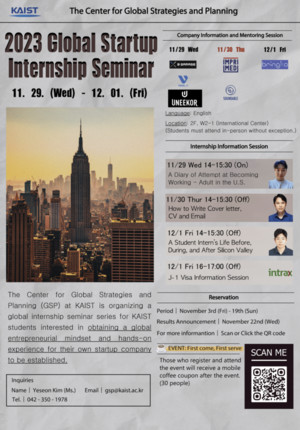
Founding a successful startup and making it flourish enough to expand to the biggest market in the world — the US — is the ultimate dream of many ambitious students at KAIST.Since last year, the Center for Global Strategies and Planning (GSP) has been supporting students pursuing this aspiration. In
Interview
Kyu-Ri Kim Staff Reporter
2023.11.19 16:39
-
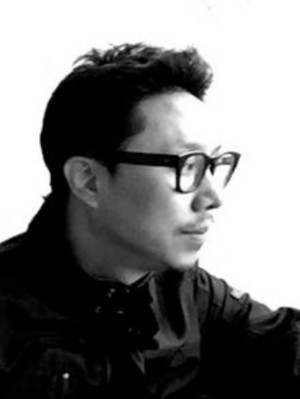
Continuing from Part 1 of the interview last month, Professor Jinjoon Lee discusses his vision for art.As a new media artist, your work largely intersects with the realm of technology. How do you think that KAIST and other tech institutions in Korea should expand to the art sector?As someone deeply
Interview
Kyu-Ri Kim Staff Reporter
2023.10.13 21:19
-
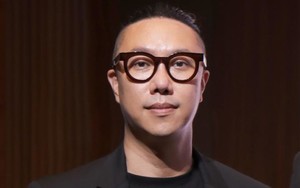
With the new art museum slowly taking shape, art is emerging as a fresh interest for many tech-immersed students. With respect to the advent of the art sector at KAIST, we met Professor Jinjoon Lee, Assistant Professor at KAIST leading the Art and Technology Center and Total Experience Creative Medi
Interview
Kyu-Ri Kim Staff Reporter
2023.09.25 16:42
-
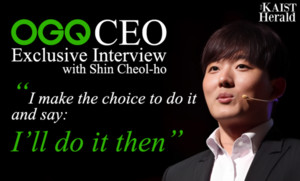
On April 26, KAIST held a Failure Seminar which invited guests, such as entrepreneurs and content managers, from all over Korea to share the necessary failures that contributed to their achievements. I.T. Shin (also known as Cheol-ho Shin), founder and CEO of OGQ — a social creator platform with ove
Interview
Andrei Kim Staff Reporter
2023.06.12 07:05
-
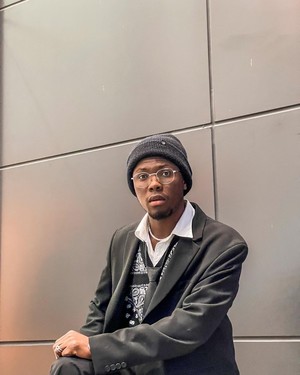
On April 1, the KAIST International Scholar & Student Services (ISSS) Team invited all students, both Korean and international, to the first-ever Listen-Connect Open House event. Aimed at promoting an all-inclusive atmosphere at KAIST, the event hosted various student performing groups and offered a
Interview
Kyu-Ri Kim Staff Reporter
2023.04.14 02:19
-
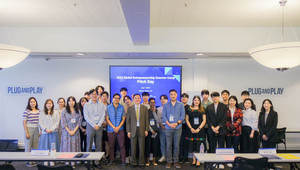
Last year, the Center for Global Strategies and Planning (GSP) and Startup KAIST launched the Global Entrepreneurship Summer Camp (GESC), a two-week camp that gave KAIST students the opportunity to experience Silicon Valley firsthand. Following its immense success, KAIST has revamped the program to
Interview
Benedict Fabia Head of Society Division
2023.03.27 00:02
-

On January 14, Chartered Financial Analyst (CFA) Society Korea held the domestic final round of the "2022-2023 Research Challenge", a corporate investment analysis competition for undergraduate and graduate students. The participants, grouped into teams of three to five people, were assigned a compa
Interview
Andrei Kim Staff Reporter
2023.02.09 02:57
-
Programs that help close the divide between the Korean and international communities of KAIST should be maintained. For this month, The KAIST Herald interviewed the participants, Seongjun Hong and Selahattin Fatih Keser, and the staff, Jongseok Lee, behind the KAIST Friendship Program. Hopefully, th
Interview
Benedict Fabia Head of Society Division
2022.12.08 13:46
-
This month, The KAIST Herald interviewed Ysa Margarita San Juan, the President of KAIST International Student Association (KISA). Over the past two semesters, KISA has seen a growth in popularity and acceptance among the international community. In this interview, Ysa shared with us some of her thou
Interview
Fuad Samadov Staff Reporter
2022.11.17 23:11
-
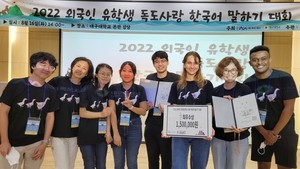
This month, The KAIST Herald had a chance to interview members of KI House — a program in which international students from KAIST can sit down for one-on-one Korean lessons with volunteer teachers — who participated in and won first place in the national “Dokdo Love” Korean speaking competition held
Interview
Jun Seong Kim Staff Reporter
2022.10.14 13:18
-

With the collaboration between SAP SE, an international enterprise software company, and KAIST, a new course for the Department of Business and Technology Management (BTM) has been introduced: “Special Topics: Enterprise Business Solutions with Artificial Intelligence” (MSB481). In the course, SAP S
Interview
Andrei Kim Staff Reporter
2022.09.25 22:43
-

Every June, we commemorate Pride Month to promote a more inclusive society towards members of the LGBTQ+ community. Although tolerance for queer people is still not the default — especially in Korea — progress continues to be made, slowly but surely, not least due to the efforts of LGBTQ+ organizati
Interview
Cris Jericho Goh Cruz Staff Reporter
2022.06.14 00:20
-
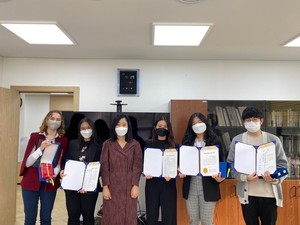
In an attempt to revitalize the KAIST campus culture, President Kwang Hyung Lee initiated the QAIST New Student Culture Competition last year. The school plans to implement the ideas proposed by the winning teams. The KAIST Herald interviewed members of the Grand Prize winners, Stella Yolanda of KAI
Interview
Berhane Weldegebriel Staff Reporter
2022.05.23 21:56
-
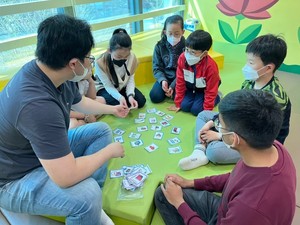
“It was a gloomy November evening. My friend and I were sitting in one of the on-campus lounges, tired after a whole day of focused studies and work. During the time of day-end relaxation, you let your mind wander, and conversations with friends keep getting deeper. At some point, we found ourselves
Interview
Fuad Samadov Junior Staff Reporter
2022.04.12 17:45
-
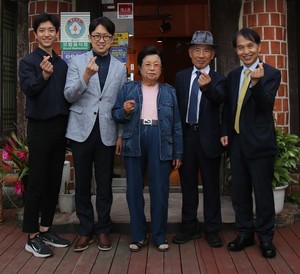
Founded in the Fall 2021 semester, KAINATION is a donation club seeking to foster collective effort among students to solve internal issues and help KAIST advance to become the world's leading university with unity and purpose. This month, The KAIST Herald interviewed KAINATION's founder, Changseob
Interview
Andrei Kim Staff Reporter
2022.04.12 17:26
-

On International Women’s Day last March 8, The KAIST Herald had the chance to interview Professor Meeyoung Cha, a female professor from the School of Computing and an accomplished researcher in the field of data science. A KAIST alumna herself, Professor Cha talked about her experience as a woman in
Interview
Cris Jericho Goh Cruz Staff Reporter
2022.03.24 23:18
-
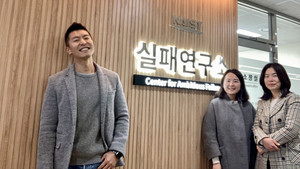
The Center for Ambitious Failure was established in June 2021, in line with President Kwang Hyung Lee’s initiative to establish a “failure laboratory” and to instill a culture of resilience and creativity in KAIST. The KAIST Herald interviewed Professor Junyong Noh, the director of the Center, to fi
Interview
Jaymee Palma Senior Staff Reporter
2021.12.18 20:03
-
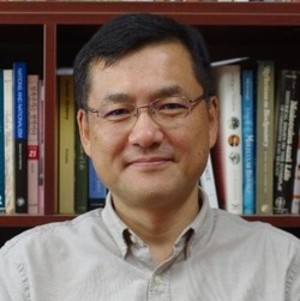
As the 2021 United Nations Climate Change Conference (COP26) took place in Glasgow, UK, The KAIST Herald looked closer to home for an insight into science and environmental policy for the modern age. We sat down with Professor Buhm Soon Park, the Director of the Center for Anthropocene Studies at KA
Interview
Ada Carpenter Senior Staff Reporter
2021.11.21 21:18


















